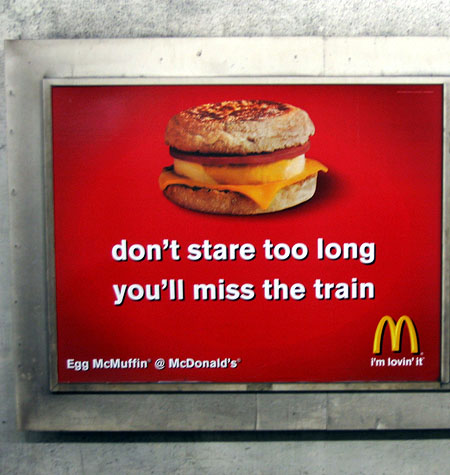“The good news is that food connects us. The bad news is that food can divide us.”
The highly personal and cultural food preferences discussed in Part 1 have set the stage for an even deeper delve into the Dr. Jekyll and Mr. Hyde role that food plays in our lives.
As if dealing with food disparities in public wasn’t enough, many of us have our own, private battles with food going on underneath our very own skin.
Our Greatest Battle: The Private Wars Within?
Like a bi-polar tennis match, one day, we confidently continue on a path of eating well; the next, triggered by some event or emotion, we spiral downward, justifying our gluttony, or for others, harsh deprivation.
Silence. Defeat. Embarrassment. Shame.
Can you relate?
The stronghold of guilt that food can play in our lives can be paralyzing. I’ve been there, and I’ve seen it firsthand.
The vulnerabilities of this downward cycle are dangerous, and getting caught in the tornado of eat-repent-eat not only harms our nutritional health; it can detrimentally consume our emotional wellbeing.
I fully believe that it is this intimately personal, uncontrolled relationship with food that is driving our nation’s biggest problem with obesity.
No amount of obsessive calorie counting, no amount of compulsive exercise, and no amount of negative, self-martyring can repair this tumultuous struggle.
These are all surface fixes to greater issues at hand.
The Misconnect Between Knowing & Doing
Yes, lack of knowledge or understanding may be driving some people’s unhealthy patterns… But, for most, I would argue that we know what to do.
So, gosh darnit, why is that we don’t do it?
What drives this misconnect between KNOWING and DOING?
Taking a step back, how can something SO vital to our daily lives have such a guilty stronghold over us?
….
The Answers Within Us and Amongst Us
To understand how our own food habits can divide our own souls, answers lie within each of us, and also within our societal culture.
1) Biology has programmed us to seek food for comfort.
For some of us, the subconscious pattern of reaching for food when we’re emotionally upset has been programmed in us since we were infants.
Think about it; when you cried, there was a 1 in 3 chance that it was due to hunger. And after being fed, you were comforted.
But, we aren’t infants anymore, and food isn’t a viable solution to truly comforting us when we’re in need.
2) Society’s media, information overload, and work culture have bred us to an all-or-nothing attitude towards food.
 One day, while driving, you notice a billboard for a McDonald’s Egg McMuffin. Ten seconds later, you pass by another billboard of a half-naked Victoria’s Secret model.
One day, while driving, you notice a billboard for a McDonald’s Egg McMuffin. Ten seconds later, you pass by another billboard of a half-naked Victoria’s Secret model.
Hmm.
The same pattern occurs on TV, in the news, and in magazines. We’re bombarded with ads that tell us image is everything, and then, after digesting this message, there are attractive models telling us to eat fast food.
Ugh!
We are bred to constantly compare in an unhealthy way, and it continues in the realm of the workplace.
We are pushed to do better, earn more, go higher.
There is no TIME to relax. No TIME to enjoy our food. No TIME to listen and reflect on our souls’ needs.
Rush, rush, rush. TIME is money.
Society is telling us these things that are harming our body image and eating patterns: look like a model, be a career rockstar, eat fast food. Look like a model, be a career rockstar, eat fast food.
The Baby Steps of Change
Exploring these answers hopefully will open us up for change and growth.
The first step?
1) Acknowledge that food is a stronghold in your life.
So cliché, but so true; if you don’t even acknowledge emotional eating occurs in your life, there’s no hope to move forward.
This allows you to peel back layers, to step outside yourself, and to become aware of the possible triggers taking you down this awful pathway.
And then?
2) Realize that these patterns have been instilled in you for quite a while, and it may take quite a while to undue these psychological and physiological patterns.
Guess what?
That’s okay. And normal!
3) Remove any obstacles or temptations in your way.
If there is a certain food or situation that triggers your emotional eating, REMOVE IT. It’s not that you won’t ever be able to eat it again; it’s just that you need time to heal without it tempting you daily.
4) Take baby steps towards finding true ways to fill up without food.
Taking progressive baby steps goes against society’s typical all-or-nothing attitude, and big swings of success and failure (with food and life).
We aren’t meant for all-or-nothing.
We’re meant for slow and steady progress. We’re meant to honor our bodies, because they’re gifts and vessels to our souls.
Journal. Walk. Pray. Sing. Laugh. Dance. Have coffee with a friend.
These are the things, amongst others, that will help heal these patterns, and will FILL YOU UP for the long-term.
5) Eat mindfully. Realize that food is to be ENJOYED and to be eaten INTUITIVELY.
Truth be told, food is one of life’s pleasures!
It doesn’t mean you have to take it to the 9th degree and eat the whole cake.
But, freedom from guilty eating comes from allowing yourself to eat WHEN you’re truly hungry, and trusting WHAT your body wants to eat.
Removing rules and restraints helps remove the potential for these so-called “rules” to even be broken and abused in the first place.
By listening to your body, you can gain back a trusting, healthy relationship with it. Your body knows what it truly wants and needs to be a finely tuned machine!
Eat mindfully.
Chew your food thoroughly.
Be grateful.
Close your eyes, and really taste and savor the delicious flavors that are nourishing your body.
Hopefully, these messages of joy and nourishment to your body and mind will break the chains of guilt and fear around food, and set you free!
I invite you to share your experiences, triumphs, defeats, and/or thoughts below regarding your own personal battles with food.


